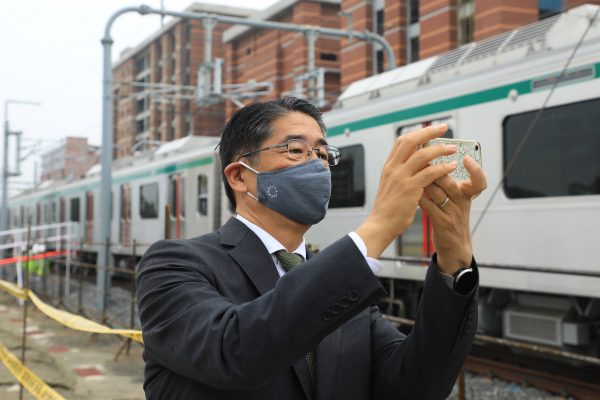Immediately after Bangladesh gained independence in 1971, Japan lent Dhaka a helping hand to reconstruct the war-torn country. Bangladesh and Japan started diplomatic relations on 10 February 1972. Since then, the two countries have enjoyed a fruitful and trustworthy relationship. Japan is one of Bangladesh’s largest development partners and a vital source of aid as the country attempts to graduate from least developed country status by 2026 and become a developed country by 2041.
Bangladesh’s bilateral relations with Japan range from socio-economic to people-to-people links. But the relationship can be further strengthened through signing a free trade agreement (FTA), accelerating investments in special economic zones (SEZs), cooperating on vaccine co-production and supporting each other in multilateral fora.
Over the last decade, Bangladesh has been able to maintain an average growth rate of 6.6 per cent. Japan has provided loans and grants for infrastructural development projects in Bangladesh, notably for the Mass Rapid Transit in Dhaka and Matarbari Port. Under the strategic ‘Bay of Bengal Industrial Growth Belt’ scheme, Japan sees Bangladesh as a gateway to South and Southeast Asia. At the same time, Bangladesh is actively focusing on its ‘Look East’ policy to accelerate its economic and infrastructure development.
Amid the COVID-19 pandemic, mega projects including the Padma Multipurpose Bridge, Metro Rail project and Matarbari Port are moving ahead at full speed. China, India and Russia — Bangladesh’s three largest development partners — are interested in utilising Bangladesh’s strategic and economic advantages. These include the geographical location of the country at the crossroads of South and Southeast Asia and at the northern apex of the Bay of Bengal. Also, cheap labour and quality readymade garments, stable economic growth, rapidly growing investment opportunities in infrastructural development and a huge population make Bangladesh an attractive investment destination.
Japan should increase its cooperation with Bangladesh to ensure a fully-fledged development partnership. To achieve this, Bangladesh and Japan should aim to develop new economic frameworks with one another such as an FTA.
The Japanese Ambassador in Dhaka, Naoki Ito, expressed Japan’s desire to increase investments in Bangladesh post-COVID-19. Japan has proposed establishing two more SEZs in Matarbari and Mirsarai to elevate the economic partnership. But to capitalise on opportunities like this, Bangladesh needs to remove existing obstacles to international investment like complicated customs procedures and other trade and tariff restrictions.
For Japan, there are ample opportunities for high turnover in wide-ranging sectors, such as garments and light engineering, agriculture, technology, power and energy. In August 2020, Bangladesh received an annual official development assistance loan package from Japan worth US$3.2 billion. This loan was granted for the development of seven large projects including the Dhaka Mass Rapid Transit, the Jamuna Railway Bridge and the Hazrat Shahjalal International Airport expansion. If trade and investment barriers are removed, an entirely new landscape will exist for Japanese trade and investment.
On 5 August 2020, the Japan International Cooperation Agency signed a loan agreement with Bangladesh to provide US$330 million for COVID-19 crisis management to mitigate socio-economic impacts of the virus. With the final batch of consignments arriving at the Dhaka International Airport on 28 August 2021, Japan completed its commitment to provide 3.2 million vaccines to Bangladesh under COVAX. Japan also provided medical equipment for healthcare workers and emergency toolkits.
Along with vaccinating its citizens, Bangladesh’s government has vaccinated about 65,000 forcibly displaced Myanmar nationals above 45 years of age inside camps in Cox’s Bazar. During the last meeting with the Japanese Ambassador on 22 August, the foreign ministry of Bangladesh requested Japan bring the Rohingya community under its program for COVID-19 vaccination.
Japan has been assisting Bangladesh to mitigate the economic and social drawbacks of implementing the Sustainable Development Goals. But since 2017, Bangladesh has been burdened with the Rohingya crisis. Even after four years, there is still no sustainable solution. Whereas humanity should take precedence over narrowly defined state interests, Japan has refrained from criticising Myanmar over the Rohingya issue in international fora. Japan’s stance in favour of Myanmar has been questioned both in Bangladesh and in global media.
At the upcoming 76th session of the UN General Assembly, Japan should actively support Bangladesh in finding the best solution to the refugee crisis. Bangladesh has supported Japan in various international fora, such as when it withdrew its candidacy for a non-permanent seat in the United Nations Security Council in favour of Japan in 2014. Bangladesh also supports Japan’s aspiration to become a permanent member of the Security Council. Japan should support Bangladesh on resolving the Rohingya issue and uphold the human rights of the voiceless Rohingya community.
Projects under the ‘Bay of Bengal Industrial Growth Belt’ are under construction. But without signing an FTA and supporting each other on the international stage, the Japan–Bangladesh bilateral relationship will not reach its full potential.
Shaikh Abdur Rahman is a Research Assistant at the Central Foundation for International Strategic Studies in Dhaka, Bangladesh.

